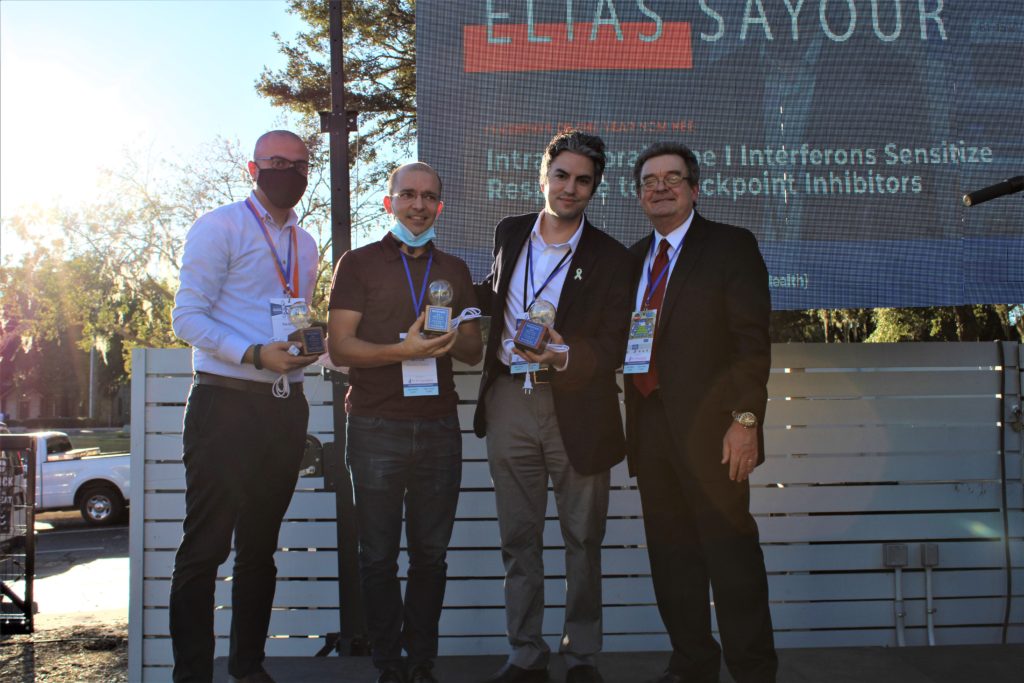Hot Tumors: The Turbo Engine That Immunotherapy Needed
by Maja Aganovic
UF Innovate
Immunotherapy is a hot topic of conversation when it comes to cancer treatment. Pediatric oncologist Dr. Elias Sayour and his team have found a way to make a hot tumor, their way to make immunotherapy, an alternative to chemotherapy, more effective.
“I spend the bulk of my time doing research, 80 percent of my time trying to develop new therapies for childhood cancer,” said Sayour, an associate professor of neurosurgery and pediatrics and principal investigator of the RNA Engineering Laboratory within the University of Florida Brain Tumor Immunotherapy Program. “What we do to take care of children with cancer is largely provide medicines called chemotherapy.
“These are medicines that can work against cancer, but they also can cause a lot of toxicity. And they don’t protect you after they’re out of the bloodstream.”
His team, which includes Hector Mendez-Gomes, Sadeem Qdaisat, Duane Mitchell, and Brandon Wummer – is trying to develop immunotherapy, which holds that your own body should be able to sense foreign cancer cells and tumors in the body to attack them as if they were a virus or other pathogen. A beautiful concept, but with limited efficacy; immunotherapy has demonstrated only a 15-20 percent effective rate.
“Cancer has evolved to prevent immune recognition,” explained Sayour. His team recently received the 2021 Invention of the Year award from UF Innovate | Tech Licensing for their intratumoral Type 1 interferons that sensitize response to checkpoint inhibitors.
Making immune checkpoint inhibitors more effective
The body has natural immune checkpoints that regulate the immune system in an attack against pathogens so the body doesn’t attack healthy host cells. However, these immune checkpoints can also protect cancers from the body’s natural immune defense.
Sayour began his journey by asking the question “Why are some cancers really good at turning off the immune system?”
Immune Checkpoint Inhibitors are a subset of immunotherapy. They are drugs that work by blocking the body’s natural immune checkpoints and are approved for a variety of cancer types, including skin and lung cancer. Sayour and his team sought to improve on this form of therapy.
When cancers successfully escape immune recognition, they sever the communication line to the immune system. Sayour and his team theorized that if they could determine which communication line was severed, they might be able to reverse the process.
/// Read Full Article ///
Dr. Elias Sayour and Dr. Hector Mendez-Gomes are current users in UF | ICBR’s Cytometry, Electron Microscopy, Gene Expression & Genotyping, NextGen DNA Sequencing and Proteomics & Mass Spectrometry cores.
Dr. Sadeem Qdaisat is a current user in UF | ICBR’s Cytometry core.
Dr. Duane Mitchell is a current user in UF | ICBR’s Bioinformatics, Cytometry, Electron Microscopy, Gene Expression & Genotyping, Monoclonal Antibody, NextGen DNA Sequencing and Proteomics & Mass Spectrometry cores.


